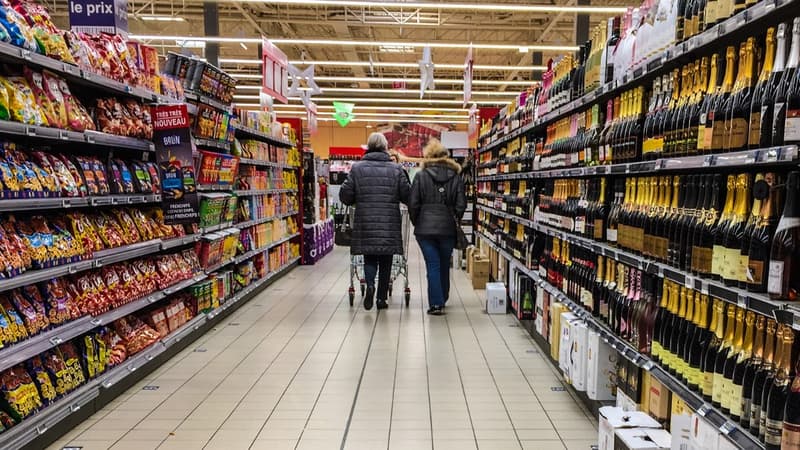How much will yoghurts, burgers or pasta cost on the shelves in spring? The only certainty on Thursday morning, a few hours from the end of the trade negotiations between supermarkets and the food industry: the bill will go up. These annual negotiations make it possible to set the price and conditions under which supermarkets will source from manufacturers. They ended Wednesday at midnight, after three months of talks.
Particularly stormy this year, its conclusion will have a direct impact on the reception of consumers who have already seen their purchasing power fall due to food inflation assessed by the Insee (National Institute of Statistics) at 14.5% annually in February. Manufacturers and the Federation of Commerce and Distribution (FCD) agree that the price increase paid by large retailers to their suppliers should be around 10%.
Increase “between 10 and 12%”?
On Tuesday night, 24 hours after the closing of the negotiations, only 70% of the food manufacturers had signed their contracts with all their distributor clients, a sign of the hardness of the discussions, according to the main organization of the sector, Ania. “The vast majority will sign out of necessity” at the last moment unless they lose distributor customers, its president, Jean-Philippe André, said on Wednesday.
The precise number of the price increase obtained by the manufacturers should be known in the next few days, when the contracts are put together and calculated, but the manufacturers have asked for “between 10 and 12%” to transfer the rise in their production costs , according to Anya. Last March they had obtained an increase of around 3%, before galloping inflation, linked in particular to the war in Ukraine, led to the reopening of negotiations to pass on the cost of agricultural raw materials, packaging, then gas and electricity.
“What we are asking for is higher than in previous years” to better remunerate breeders, a spokesman for dairy giant Lactalis, Christophe Piednoël, told RMC on Wednesday. Opening the Agricultural Show on Saturday, Emmanuel Macron had called on supermarkets to “participate in the effort”, believing that the agri-food industry had already made “a considerable effort in recent years”.
“Discounted Prices”
The president of the first agricultural union, the FNSEA, Christiane Lambert, lashed out at certain supermarkets that refuse to pay “the fair share” that would allow farmers to live from their work. The brands, for their part, denounce the lack of transparency in production costs and the “delusional” demands of manufacturers. “The real figure is an increase of 15% that the industrialists are asking us for,” denounced on Monday in France between the general director of System U, Dominique Schelcher.
According to the general director of the Federation of Commerce and Distribution, Jacques Creyssel, “some multinationals have started negotiating very late and seek to take advantage of the inflationary situation” to impose increases of up to 20%. Its members warn that they will not be able to absorb these increases on their own and will have to pass them on to consumers.
Without further details, the government spokesman, Olivier Véran, promised on Wednesday that the government will try to “lower daily prices” to preserve the purchasing power of the French. Among the measures planned, a basket-inflation proposed by the delegated minister of Commerce, Olivia Grégoire, who assured on Wednesday that this proposal, the subject of much criticism, had not been definitively ruled out. Dominique Schelcher, however, does not see a “red March” month with a sharp rise in prices. “There will be food inflation throughout the first half of 2023”, because the increases will move “little by little”, she predicts.
Source: BFM TV


